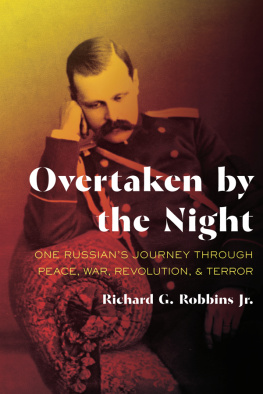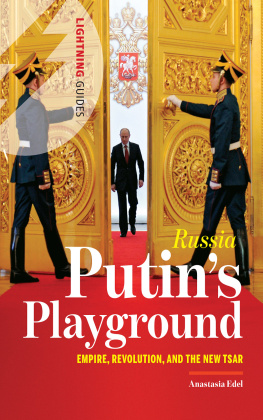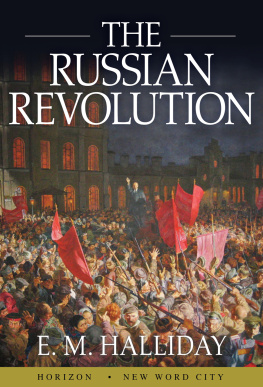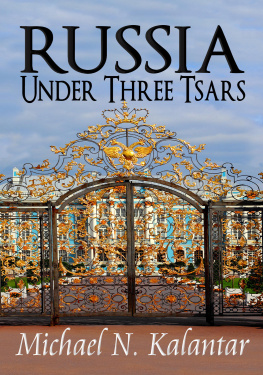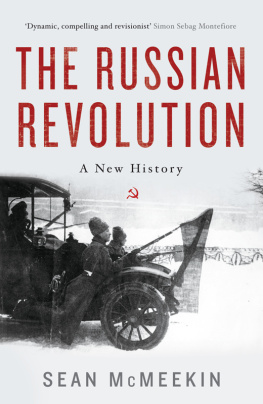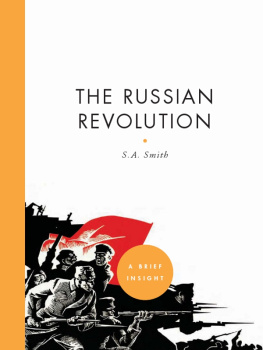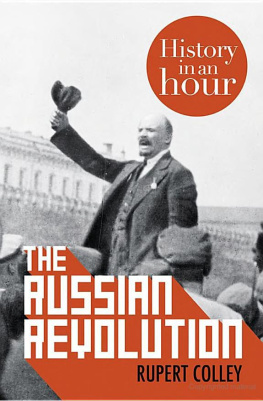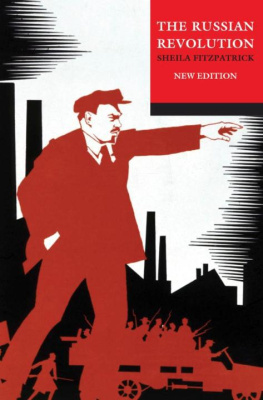Vladimir Fedorovich Dzhunkovsky, the subject of this book, was a witness to his countrys unfolding tragedythe decay of the tsarist autocracy, world war, revolution, the rise of a new regime, and its descent into terror. But Dzhunkovsky was not just a passive observer, he was an active participant in the troubled and turbulent events of his time, often struggling against the tide. This is his story; it is Russias story.
Russians such as Dzhunkovsky seldom get their stories told. Biographers, especially those in the West, prefer the four RsRoyals, Revolutionaries, Writers, and Rogues. At the height of his career, Dzhunkovsky was an important tsarist official. But of the many men who served the state only a relative few, mostly those who reached the very top, have caught a writers eye. Yet Dzhunkovskys life deserves our attention. It was long and rich in experiences and in its course intersected with many of the most important events and people of the age. It offers the fresh perspective of a man who was near the apex of power but not part of the inner circles of government; of someone who mixed with political and cultural elites but knew workers and peasants better than many radicals did. Dzhunkovskys administrative career provides insights into the ways that the character and style of Russian governance were changing in the last years of the old regime and into the struggle between reformers and the forces working to block that transformation. An account of his experiences in combat and of the revolution at the front provides a more nuanced picture of Russias Great War and the ultimate collapse of the Russian armies. Dzhunkovskys life after the revolution does more than show the quotidian troubles faced by former people under the new regime. It tells us much about early Soviet justice, police practices, cultural politics, and the long night of terror that overtook Dzhunkovsky and so many of his countrymen. As we observe the centennials of the Great War and the revolution in Russia that the conflict unleashed, the narrative of Dzhunkovskys life may have special value. Because it spans both the years before and the years that followed these great cataclysms, his journey reminds us once more of thepositive prospects that late imperial Russia held and of the negative energies that were generated during the crisis years from 1914 to 1921.
This work is an exercise in biographical history, an attempt to link Dzhunkovskys life to the larger currents that flowed around him, tracing their mutual interaction. This is an uncomplicated, some would say old-fashioned approach, but it offers the reader the advantage of bringing complex and truly titanic events down to a human scale. When I was contemplating various ways of crafting a biography, a wise friend, apparently tired of my musings and mutterings said: Just tell the story. It seemed like good advice thenand now. To the best of my ability, I have followed it.
Acknowledgments
Research for this book was made possible by financial support from the University of New Mexico, a grant from the International Research and Exchanges Board, and a Fulbright-Hays Fellowship. That generosity enabled me to travel to Russia and utilize the collections in libraries and archives there.
I am grateful to the staffs of the various archives where I worked: The Bakhmeteff Archive at Columbia University, the State Archive of the Russian Federation, the Manuscript Division of the Central State Theater Museum, the Manuscript Division of the Russian State Library, the Russian Military-Historical Archive, the Russian State Archive of Social and Political History, and the Hoover Institution Archives. Their skill and courtesy made my research pleasant and profitable.
My greatest intellectual debt is to the late Marc Raeff, who was both mentor and friend. By his teaching and exemplary scholarship he stimulated and sustained my interest in the institutions and officials of imperial Russia. His wise advice and generous support made possible my earlier scholarly efforts and his encouragement for this project helped push me to complete it.
Many academic colleagues, some no longer living, read portions of this book and made thoughtful suggestions on matters of style and substance: Abraham Ascher, Jonathan Daly, Gary Hamburg, Robert Kern, Semion Lyandres, Samuel Ramer, Jake Spidle, and Ferenc Szasz. They have my gratitude and thankful memory. I am also profoundly indebted to members of the Institute for Historical Studys Writers Group: Ann Harlow, Ellen Huppert, Joanne Lafler, Elizabeth Nakahara, Carol Sicherman, Autumn Stanley, Elizabeth Thacker-Estrada, and Louis Trager. Most of them read the entire manuscript and all asked innumerable questions and offered invaluable ideas for improvements. If this book is at all readable, it is in large part due to their efforts.
I owe a special and substantial debt to my Russian colleague Anastasia Dunaeva for her scholarship and generosity. Her excellent book onDzhunkovsky is frequently cited here, and she also shared material that had been denied me during my research in Russia. I am very grateful for her willingness to permit me to reproduce some of the pictures that appeared in her book. Thanks, too, to Koninklijke Brill Publishers for their permission to include material contained in two articles I wrote for the Journal of Modern Russian History and Historiography: Was Vladimir Dzhunkovskii the Father of the Trust? A Quest for the Plausible, in volume 1 (2008) and Building Vladimir Dzhunkovskiis Memory Palace: The Curious Fate of His Archive and Memoir, in volume 4 (2008). I also wish to thank Peter Kracht, the director of the University of Pittsburgh Press and Jonathan Harris the editor of its Russian and East European Series for their enthusiastic support of this project and for their patience in answering my innumerable and often ill-informed questions. Pippa Letsky did a thorough and careful job of copyediting the text. I am grateful to Edward Kasinec, for his sage advice about pictures, and to Jonathan Lee, for scanning some of the images presented in this book.
My greatest debt is to my wife, Catherine, friend, colleague, and critic, whose affection has sustained me for so many years. No words can even begin to express my gratitude.
Note on Dates and Spelling
All dates are given in accordance with the calendar used in Russia. Until February 1, 1918, this was the Julian calendar, which was twelve days behind the Gregorian calendar used in Europe and America in the nineteenth century and thirteen days behind in the twentieth century. In cases where both Julian and Gregorian dates seem to be required, they are written with the Julian date first, thus: January 1/14, 1917.
The spelling of names and places generally follows a modified form of the Library of Congress system of transliteration. Exceptions are made for familiar names and the names of rulers. Diacritical marks are not used in the text although they appear in the notes and in Russian words presented in italics. Names of people are modified to make pronunciation easier (for example, Muravyov instead of Muravev); surnames ending in skii and aia are transliterated sky and aya.

